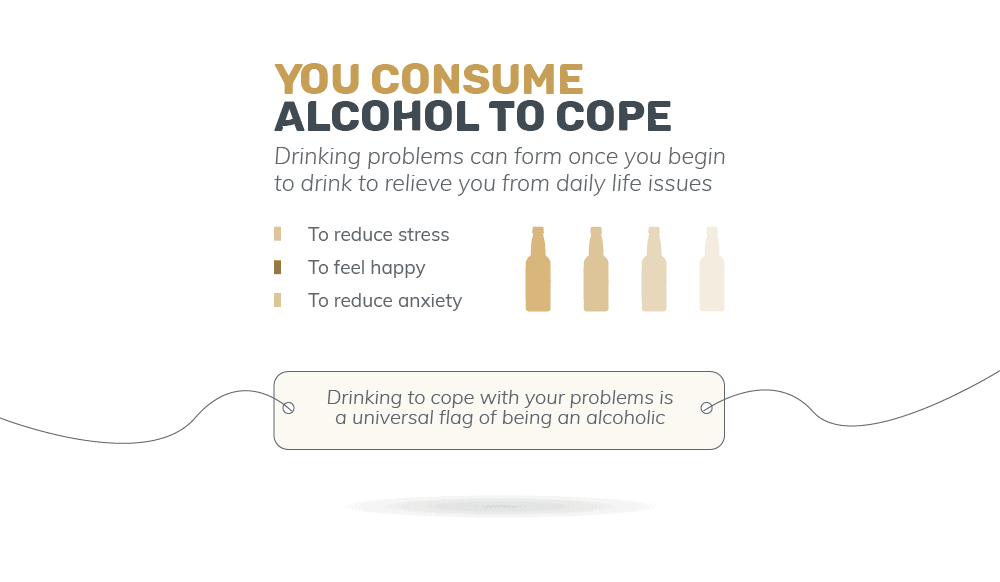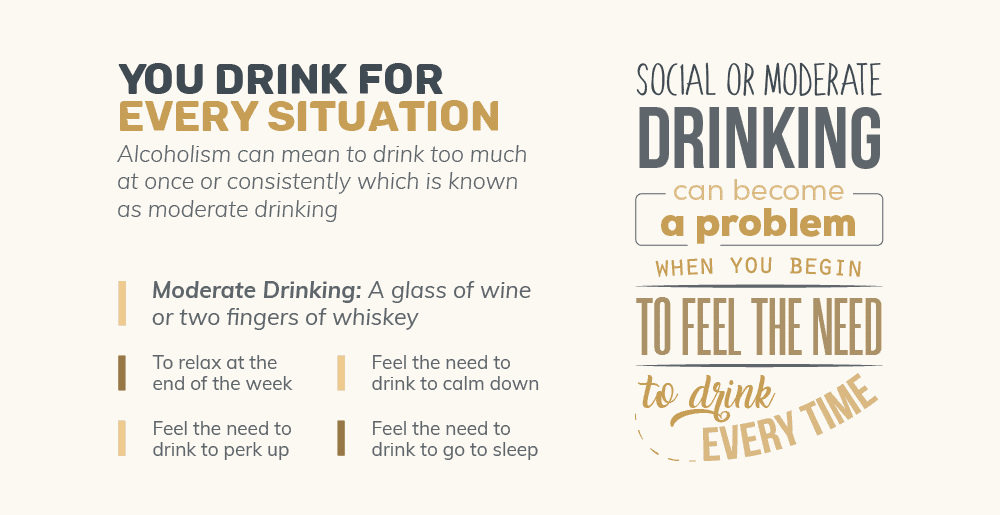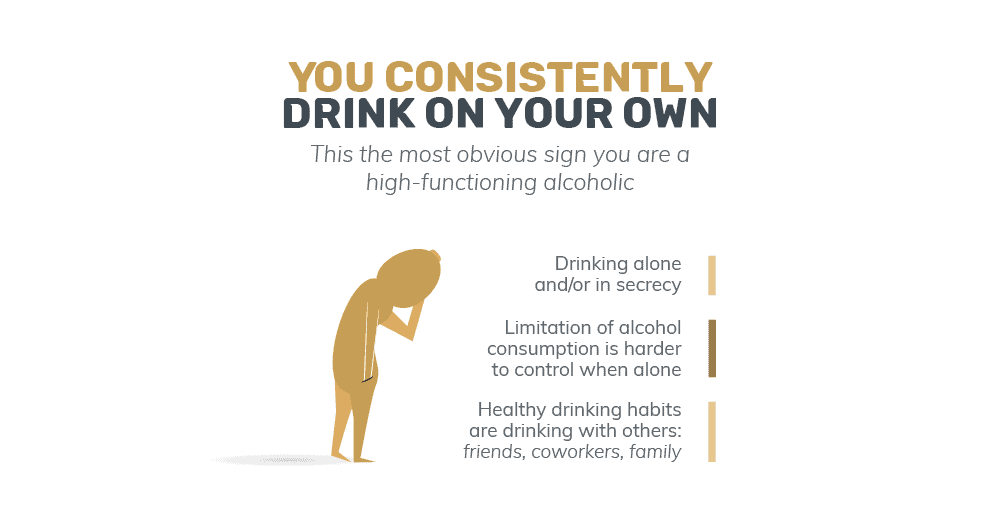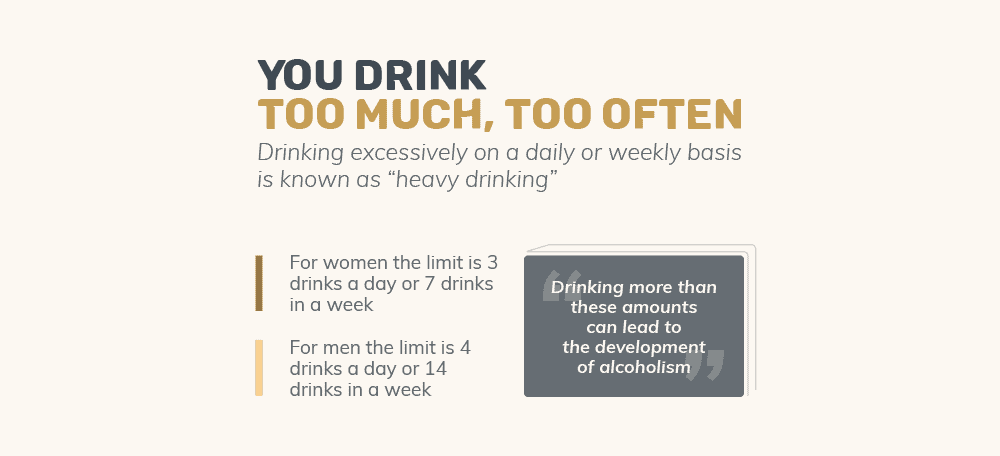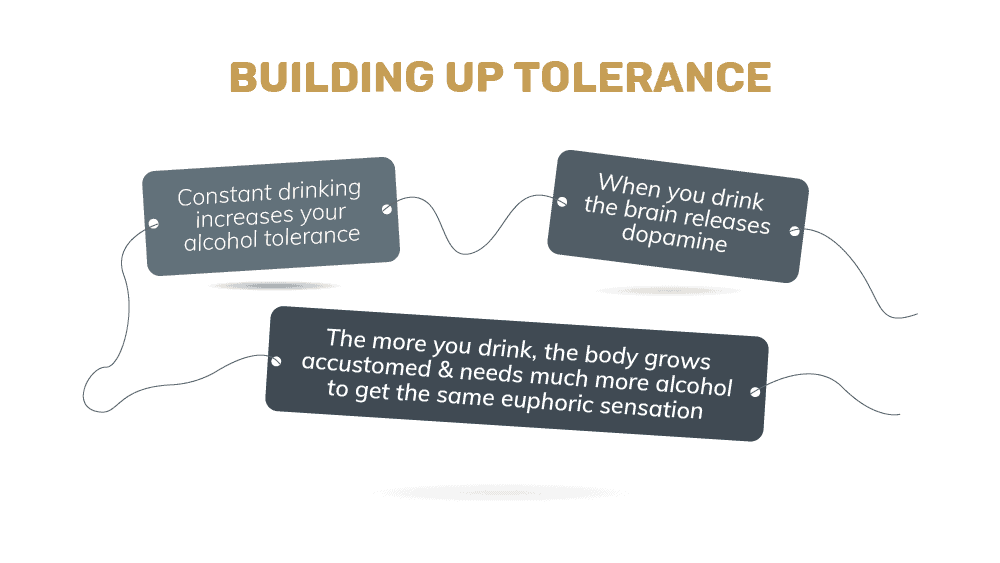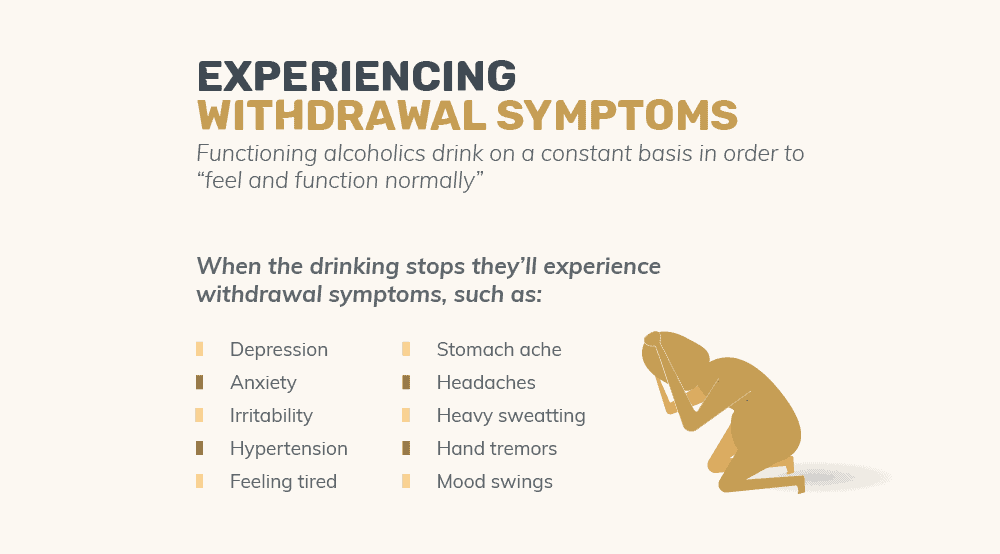Alcoholism and alcohol abuse present myriad of social, psychological and physical problems, particularly for so-called high functioning alcoholics. More than any other drug, alcohol presents a unique dilemma to those who drink it. In other words, it can sometimes be difficult to clearly see whether or not the line from moderate drinking to problem drinking has been crossed. Problem drinking can become increasingly severe, giving way to an alcohol use disorder (AUD) as defined by the American Psychological Association’s Diagnostic and Statistical Manual of Mental Disorders: “Approximately 7.2 percent or 17 million adults in the United States ages 18 and older had an AUD in 2012. This includes 11.2 million men and 5.7 million women. The severity of an AUD – mild, moderate, or severe – is based on the number of criteria met.”
“We accept various health insurance providers. Take a look at our alcohol rehab program”
These criteria include everything from spending a lot of time drinking, to continuing to drink alcohol even though it brings about depressed or anxious feelings, to alcohol causing problems with family or friends. Under this definition, some people may think that alcoholism takes a specific form and may, therefore, look a certain way. However, some people who struggle with addiction to alcoholism are able to cover up the external signs of this alcoholism – these individuals are known as high functioning alcoholics. “The classic picture of an alcoholic is someone who always drinks too much too often and whose life is falling apart because of it. But not all problem drinking fits that mold. Some people seem to be just fine while they abuse alcohol. Experts call these people functional alcoholics, orhigh-functioning alcoholics. You can still be an alcoholic even though you have a great outside life, with a job that pays well, home, family, and friendships and social bonds. A drink count isn’t the only way to tell if you or someone you care about needs help.” Because alcoholism does not always manifest in personal or social problems, some alcoholics continue to abuse alcohol while in denial about their alcoholism. With this shift in perspective, we want to present some of the major signs of high-functioning alcoholics. If you see any of these in yourself or someone you love, it is likely time to get help and start on the road to recovery.
Sign #1: You Consume Alcohol to Cope
The signs and symptoms of alcoholism may vary depending on individual cases, but this is one of the universal signs of problem drinking. When someone has their drinking habits under control, they may drink a couple of drinks once or twice a week with family or friends. In contrast, drinking can begin to get out of control when you start drinking to reduce the stress of work, to feel happy after feeling depressed, or to reduce your anxiety about a relationship or development at school. Since alcohol is essentially a depressant drug, it should never be used as a means for coping with these emotions or stressful situation. You may tell yourself that your drinking habit does not constitute an alcohol use disorder because you only have one or two drinks at a time. However, if these drinks are being used as a means to cope with your environment or experiences, this is an instant red flag.
Sign #2: You Drink Alcohol for Every Situation
Social or moderate drinking can turn into a problem when you give in to the feeling of needing a drink for nearly every situation. Moderate drinking is consuming a glass of wine or two fingers of whiskey at the end of the week to relax, enjoy the taste, and unwind after a hard week of work or study. This turns into problem drinking when you use alcohol as a means of addressing any situation: you feel the need for a drink to calm down, a drink to perk up, a drink to go to sleep, a drink to wake up. Some think of alcoholism as only consuming too much alcohol in one sitting – but it can also consist of drinking a ‘moderate’ number of drinks on a daily basis.
Sign #3: You Consistently Drink On Your Own
This is perhaps one of the clearest signs that you are a high-functioning alcoholic (or an alcoholic period, for that matter). Healthy drinking habits usually involve drinking in a social setting – with your friends, your partner, your family, and your loved ones. One of the major signs of a high-functioning alcoholic is when drinking is done alone, sometimes even in secret. When you drink on your own, it can be a lot harder to limit the amount of alcohol that you consume. As F. Scott Fitzgerald wrote, “First you take a drink, then the drink takes a drink, and then the drink takes you.”
“We accept many health insurance plans. You can get your life back in order with our outpatient program today!”
Sign #4: You Drink Too Much Too Often
As we noted above, problem drinking does not always result in problematic behavior at work or at home. Even as an alcoholic, you may be able to keep up with your projects at work, care for your family at home, and not exhibit any major negative behaviors (such as anger, withdrawal, or depression) in either setting. However, there is an objective measure for what consists of “heavy drinking” – that is, drinking too much on a daily or weekly basis. For women, this limit is three drinks a day or seven drinks in a week; for men, the limit is four drinks in a day or fourteen drinks in a week. If you drink more than this amount either on a weekly or daily basis, you are considered to be at risk for alcoholism.
Sign #5: Drinking Increasing Amounts of Alcohol as You Build Tolerance
No matter your external behavior, consistent problem drinking will increase your body’s tolerance for alcohol. Over time, this means that you will have to drink more and more quantities in order to reach the same level of intoxication – whether you are going for a buzz or for getting a drink. This is especially true if you are unable to stop drinking once you have started. Consistently finishing off a bottle of wine after it is opened is not only a sign of high-functioning alcoholism but also builds up your tolerance for alcohol, creating a cycle of dependence.
Sign #6: Experiencing Withdrawal Symptoms from Alcohol
Functional alcoholics may seem to be able to keep control once they have been drinking, but it can be difficult to exercise the same control after going too long without a drink. For alcoholics, withdrawal can look like anything from feeling depressed or anxious, increasing irritability, or feeling nauseous or tired for an extended period of time. If you experience these symptoms around the time of day that you usually start drinking, it is a sign that you are a high-functioning alcoholic and need help.
“Get the help you need today. We offer outpatient assistance, so you can maintain your work, family, and life commitments while getting the help you deserve!”
So You’re A High-Functioning Alcoholic – What Now?
If you see these signs in yourself or someone you care about, the good news is that it is not too late to get the help that you need for recovery. Alcoholism is a remediable disease with the right kind of alcohol abuse treatment, and alcohol rehab can help individuals struggling with this form of addiction successfully withdraw from alcohol and learn how to cope with the cravings and fallout associated with alcoholism. If you are still unsure about where your own alcohol consumption lies, we encourage you to take our alcoholism quiz to help determine how healthy or unhealthy your current drinking habits are. Finally, if you still have questions or have a story to share about what it means to be a high-functioning alcoholic, feel free to either contact us or leave a comment in the section below.
What Did you Think About This Blog?
Give it a Rating!


